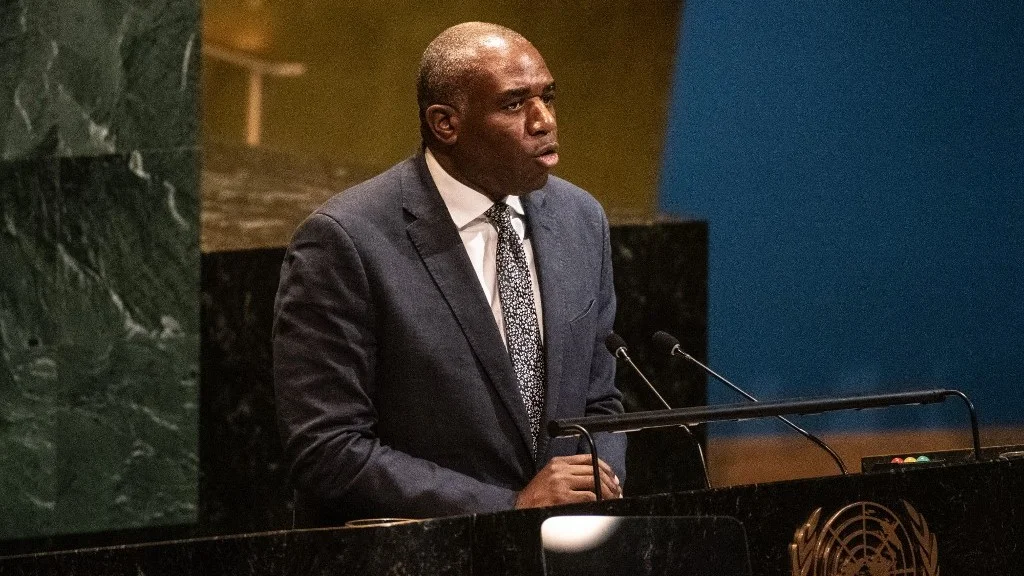Britain strongly pushed for a United Nations conference statement to demand the disarmament of Hamas and its withdrawal from Gaza, Middle East Eye has learnt.
A UN conference in New York last week, attended by more than 100 countries and co-chaired by France and Saudi Arabia, aimed to advance momentum for a two-state solution.
The New York Declaration, released afterwards, demands that Hamas end its rule over Gaza and hand its weapons to the Palestinian Authority.
Numerous diplomatic sources told MEE the UK was pivotal in pushing for these demands to be included in the statement, as well as the inclusion of strong language condemning the Hamas attack on Israel on 7 October 2023.
The statement marked the first time that Arab League states have end0rsed such positions at the UN.
New MEE newsletter: Jerusalem Dispatch
Sign up to get the latest insights and analysis on
Israel-Palestine, alongside Turkey Unpacked and other MEE newsletters
It was described as “both historic and unprecedented” by French Foreign Minister Jean-Noel Barrot.
He hailed that for “the first time” Arab and Middle Eastern countries “condemn Hamas, condemn 7 October, call for its disarmament, call for its exclusion from any form of participation in the governance of Palestine, and clearly express their intention to maintain normalised relations with Israel in the future and to join Israel and the future state of Palestine in a regional organisation”.
MEE has contacted the British Foreign Office for comment.
UK and France to recognise Palestinian statehood
During the conference, British Foreign Secretary David Lammy announced that the UK intends to recognise Palestinian statehood in September, following France’s commitment that it would do so days earlier.
Barring a dramatic diplomatic reversal, France and Britain will become the first G7 countries to recognise Palestine.
But these moves, and the UN conference, are unlikely to create any significant momentum towards a two-state solution.

Will the UK recognising the State of Palestine make any difference?
Read More »
Neither the US nor Israel attended the conference, which the US State Department described as a “publicity stunt” that would “prolong the war, embolden Hamas, and reward its obstruction and undermine real-world efforts to achieve peace”.
France’s announcement on 24 July that it would recognise the state of Palestine in September provoked the ire of Israeli Prime Minister Benjamin Netanyahu, who “strongly condemned” what he called a decision that “rewards terrorism”.
On 23 July, the Israeli parliament passed a non-binding motion calling on the Israeli government to annex the occupied West Bank.
And on 4 August, unnamed sources close to Netanyahu briefed local media that he is now pushing for the full occupation of the besieged Gaza Strip.
Channel 12 quoted “senior figures in the Prime Minister’s Office” as saying: “The decision has been made, Israel is heading towards the occupation of the Gaza Strip.”
This would involve expanding ground operations into areas where captives are believed to be held, and into locations where Israeli troops have not operated for over a year, including western Gaza City and the central refugee camps.
In these circumstances, a viable Palestinian state is highly unlikely to materialise.

